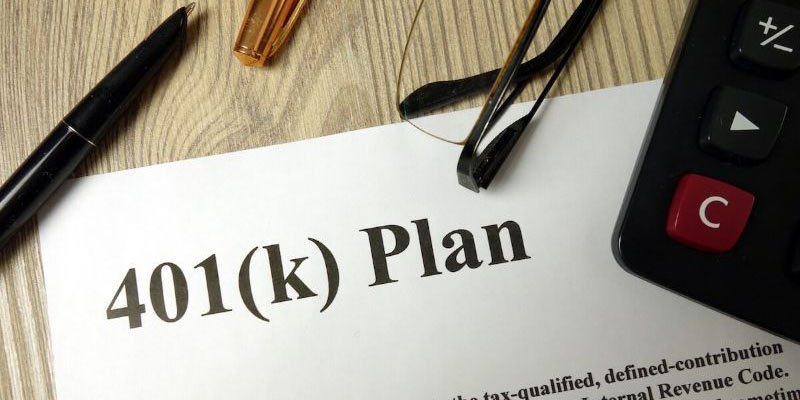The Path to Homeownership: Understanding VA Home Loans
Oct 11, 2023 By Susan Kelly
If you're a military veteran, the dream of owning your own home can become a reality thanks to VA Home Loans. This financial opportunity uniquely benefits veterans, making Homeownership more accessible than ever. In this article, we'll explain what a VA Home Loan is, how it works, and why it's an excellent option for those who've served our country.
What Is a VA Home Loan?
A VA Home Loan, short for Veterans Affairs home loan, is a mortgage program designed specifically for Military Veterans and active-duty service members. It's a government-backed loan offered by private lenders like banks and mortgage companies but with a twist – the Department of Veterans Affairs guarantees a portion of the loan, making it relatively less risky for lenders.
This guarantee encourages lenders to offer eligible veterans favorable terms and lower interest rates.
Eligibility
To access the benefits of a VA Home Loan, you need to meet eligibility requirements. Generally, you qualify if you fall into one of the following categories:
- Service Requirements: You must meet the following service criteria: A minimum of 90 consecutive days of active service during wartime, 181 days during peacetime, or six years in the Reserves or National Guard.
- Honorable Discharge: You have received an honorable discharge.
- Surviving Spouses: Surviving spouses of veterans who died in service or as a result of a service-connected disability may also be eligible.
Benefits of VA Home Loans
VA Home Loans come with a variety of advantages that set them apart from conventional mortgages:
No Down Payment
Imagine this: you find your dream home, but there's no need to scramble for a hefty down payment. Veterans can step into their new homes with VA loans without shelling out a dime upfront.
This financial freedom opens doors for those who might not have substantial savings stashed away. It's a sigh of relief for veterans who've dedicated themselves to serving their country and deserve a smooth path to Homeownership.
Lower Interest Rates
The prospect of lower interest rates with VA loans isn't just a small perk; it's a financial game-changer. When your interest rate is lower, your monthly mortgage payments become more affordable. Over the life of your loan, this can add to significant long-term savings, allowing you to invest in other aspects of your life while comfortably owning your home.
No Private Mortgage Insurance (PMI)
For many homebuyers, PMI can feel like an extra weight dragging down their finances. But not for veterans; VA loans don't burden you with PMI requirements, meaning you can say goodbye to that extra monthly expense. This translates to more money in your pocket each month, making Homeownership a dream and practical reality.

Flexible Credit Requirements
Life happens, and sometimes credit scores take a hit. VA loans understand this reality and offer a more forgiving approach to credit requirements. While good credit is always beneficial, veterans with varying credit histories can still qualify for these loans. It's a lifeline for those facing obstacles with conventional loans due to credit concerns.
Limits on Closing Costs
The process of buying a home involves various expenses, including closing costs. Fortunately, VA loans have your back here, too. These loans limit the amount you can be charged for closing costs, which means you'll have more financial breathing room during the already intense home-buying process. It's a small but crucial detail that eases the financial burden on veterans.
Streamlined Refinancing
Life circumstances change, and so can your financial needs. VA loans recognize this and offer the Interest Rate Reduction Refinance Loan (IRRRL) program. This handy program allows veterans to refinance their VA loans with minimal paperwork and lower fees.
How to Apply for a VA Home Loan?
Getting a VA Home Loan involves several steps:
Obtain a Certificate of Eligibility (COE): This official document affirms your qualification for a VA loan. You have the option to submit an online application via the VA's eBenefits portal, or your lender can assist you in obtaining it.
Choose a Lender: Find a lender approved by the VA to offer VA loans. They will guide you through the application process.
Prequalification: Before house hunting, getting prequalified for a loan is a good idea. This will give you an idea of how much you can afford.
House Hunting: Work with a real estate agent to find a home that meets your needs and budget.

Make an Offer: Once you've found the right home, make an offer. Your lender will need the purchase agreement to proceed with the loan application.
Loan Application: Complete the VA loan application with your chosen lender. Be prepared to provide financial information, employment history, and other necessary documentation.
Home Appraisal and Inspection: The lender will order an inspection and a home appraisal to ensure the property meets VA loan standards.
Underwriting and Approval: The lender will review your application and the property's appraisal and inspection reports. If everything checks out, they'll approve your loan.
Closing: Attend the closing to sign the final paperwork. Congratulations, you're now a homeowner!
Things to Keep in Mind
While VA Home Loans offer many advantages, there are some important considerations to bear in mind:
Funding Fee: Most borrowers must pay a VA funding fee, which helps offset the loan program's cost. However, this fee can be rolled into the loan, so you don't have to pay it upfront.
Property Requirements: VA loans have specific property requirements, including a VA appraisal, to ensure the home is safe and sound. It's essential to choose a property that meets these criteria.
Resale Limitations: If you plan to sell your home, be aware that there may be restrictions on selling a property within a certain timeframe after purchase.
Conclusion
In conclusion, a VA Home Loan is a fantastic opportunity for Military Veterans and active-duty service members to achieve the dream of Homeownership. With its attractive benefits, such as no down payment, lower interest rates, and flexible credit requirements, VA loans make it feasible for veterans to buy their homes.
-
 Taxes Oct 28, 2023
Taxes Oct 28, 2023Discuss in Detail: What Is Taxable Income?
Income subject to taxation is known as "taxable income" to determine an individual's tax liability for a given year. It's the difference between your gross income and your deductions, whether itemised or standard. Earned income such as salaries, wages, bonuses, and tips; investment income; and unearned income such as gifts and inheritances are all subject to taxation.
-
 Know-how Nov 30, 2023
Know-how Nov 30, 2023How To Spot A Liar In A Real Estate Agent
When buying or selling a property, you're probably dealing with the largest financial transaction of your life. Therefore your real estate agent must be trustworthy. Unfortunately, dishonest people can assume becoming a real estate salesperson is a simple way to get rich quick. A real estate license can be obtained quickly and easily in some states.
-
 Currency Sep 20, 2024
Currency Sep 20, 2024Using Moving Averages: EMA Indicator Guide for Effective Trading
The EMA is also known as the Exponential Moving Average. The ema indicator emphasizes current prices and makes them more sensitive.
-
 Mortgages Oct 31, 2023
Mortgages Oct 31, 2023Pros and Cons of Using Your 401(k) to Buy a House: Overview
In this article, we delve into the intricacies of utilizing 401(k) loans for home purchases, dissecting the pros and cons that come with this financial choice.
